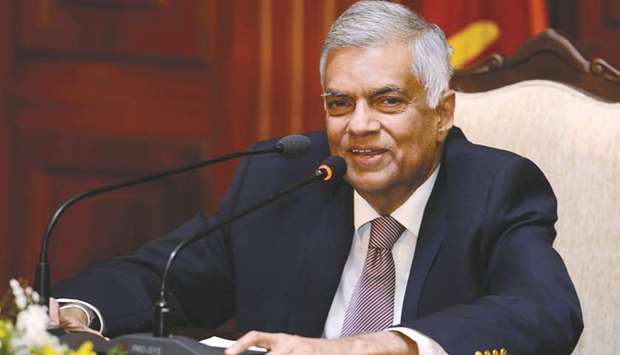Prime Minister Ranil Wickremesinghe’s centre-right United National Party (UNP) and President Maithripala Sirisena’s centre-left Sri Lanka Freedom Party (SLFP) were routed by a party backed by former president Mahinda Rajapakse, plunging the
government into crisis.
Rajapakse, who crushed the Tamil Tiger rebels in a 26-year civil war before he was ousted in 2015, called for the parliament to be dissolved and a snap
election to be held.
Since the February 10 vote, Sirisena has been in talks with Wickremesinghe’s party as well as opponents led by Rajapakse on forming a new government.
But yesterday the coalition parties confirmed they would stick together.
“We are working on the motion passed in parliament and we have not rescinded it. And I don’t think there is a need to cancel that,” Wickremesinghe told parliament, referring to the motion passed by the two parties in September 2015 to form the national government.
The secretary of Sirisena’s party, Fisheries Minister Mahinda Amaraweera, also said the agreement between the two parties to work together still stood and had not been
withdrawn.
“The UNP and we have entered the agreement; we have decided to continue with it. No decision has been made to leave it,” he said.
Analysts said the remarks from the parties eased the negative sentiment over a possible change of government.
The political uncertainty hurt the rupee, which hit a record low on February 14 and the stock market.
However, both have recovered since the parties have been in discussions to continue the coalition government with a cabinet reshuffle.
The central bank chief last week said the political uncertainty could weigh on Sri Lankan economic growth this year.

